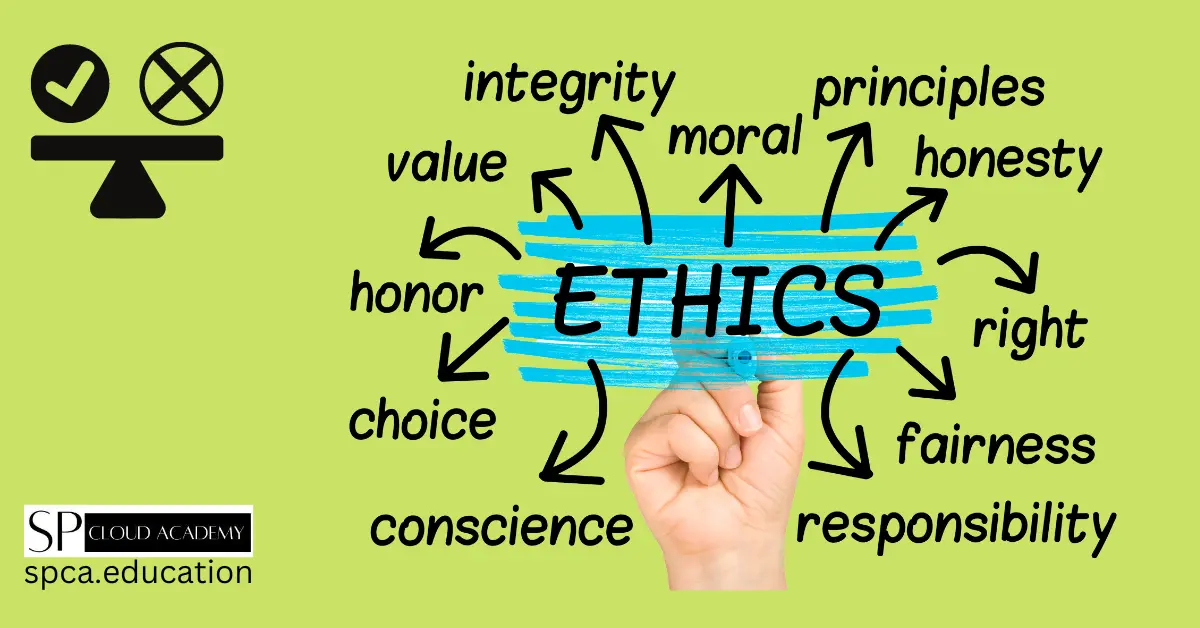Ethics play a crucial role in the field of education, ensuring that teachers maintain high standards of professional conduct. As an educator, it is essential to be aware of the ethical responsibilities that come with the profession. This article aims to explore the importance of ethical conduct in teaching and provide strategies for navigating ethical dilemmas in the classroom.
The importance of maintaining high standards of professional conduct
Teachers are entrusted with the education and well-being of their students. Maintaining high standards of professional conduct is vital for creating a safe and nurturing learning environment. By adhering to ethical guidelines, teachers establish trust and credibility among students, parents, and the community.
Ethical conduct goes beyond simply following rules and regulations; it involves integrity, honesty, and a commitment to the best interests of students. Teachers who prioritize ethical behavior become role models for their students, instilling in them the values of respect, fairness, and responsibility.
Ethical guidelines for teachers
To ensure ethical conduct, teachers should familiarize themselves with the ethical guidelines provided by professional organizations and educational institutions. These guidelines serve as a framework for decision-making and provide clarity on expected behaviors.
Some common ethical principles for teachers include:
- Confidentiality: Respecting the privacy of students and maintaining the confidentiality of their personal information is crucial. Teachers should exercise caution when discussing student matters with others, ensuring that sensitive information remains protected.
- Professional boundaries: Establishing clear boundaries between professional and personal relationships is essential. It is important to maintain a professional distance while still building positive relationships with students.
- Equity and fairness: Treating all students with fairness and impartiality is a fundamental ethical principle. Teachers should strive to create an inclusive classroom environment where every student has an equal opportunity to learn and succeed.
- Respect and dignity: Showing respect and treating students with dignity is a cornerstone of ethical conduct. Teachers should value the diversity of their students and foster an atmosphere of mutual respect.
Navigating ethical dilemmas in the classroom
As a teacher, you may encounter various ethical dilemmas in the classroom. These situations require careful consideration and decision-making to uphold professional standards. One common ethical dilemma is balancing the need for discipline with the principles of fairness and respect.
When faced with such dilemmas, it is essential to reflect on the potential consequences of your actions and seek guidance from colleagues or administrators. Additionally, involving students in the decision-making process can help them develop their own ethical reasoning skills.
Remember, ethical dilemmas are not always black and white. They often require creative problem-solving and a deep understanding of your ethical obligations as a teacher.
Building positive relationships with students while maintaining professional boundaries
Teachers play a crucial role in building positive relationships with their students. However, it is equally important to maintain professional boundaries to ensure ethical conduct. Striking the right balance can be challenging, but it is essential for creating a safe and respectful learning environment.
One way to navigate this challenge is by establishing clear expectations and boundaries from the beginning of the school year. Communicate to students that while you are there to support and guide them, there are certain boundaries that must be maintained for everyone’s well-being.
Regularly reflecting on your interactions with students can also help you maintain professional boundaries. Ask yourself if your actions are in the best interest of the student and if they align with the ethical guidelines you follow.
The role of ethics in teacher-student interactions
Ethical conduct is paramount in teacher-student interactions. Teachers must be mindful of the power dynamics at play and ensure that their actions are always in the best interest of the students. Ethical behavior in this context involves treating students with respect, providing equal opportunities, and avoiding favoritism or discrimination.
When interacting with students, it is important to listen actively, show empathy, and provide constructive feedback. Avoid engaging in behaviors that may compromise the dignity or well-being of the student.
By modeling ethical behavior, teachers can inspire their students to develop their own ethical reasoning skills and contribute positively to their communities.
Strategies for promoting ethical behavior in the classroom
Creating a classroom environment that promotes ethical behavior requires intentional effort. Here are some strategies to consider:
- Teach ethics explicitly: Incorporate ethics education into your curriculum. Engage students in discussions and activities that encourage critical thinking about ethical dilemmas.
- Foster a respectful and inclusive classroom culture: Establish clear expectations for behavior and promote a sense of belonging among students. Encourage open dialogue and respectful disagreement.
- Role-play ethical scenarios: Engage students in role-playing activities to help them develop their ethical reasoning skills. Present them with hypothetical situations and encourage them to consider the various perspectives and potential consequences.
- Encourage reflection and self-assessment: Provide opportunities for students to reflect on their actions and behaviors. Encourage them to assess whether their actions align with ethical principles and how they can improve.
Professional development opportunities for teachers on ethics
Continuing professional development plays a crucial role in enhancing teachers’ understanding of ethical conduct. Educational institutions and professional organizations offer various opportunities for educators to improve their ethical practices.
Consider attending workshops, conferences, or webinars focused on ethical considerations in teaching. Engage in discussions with colleagues and participate in collaborative learning experiences to gain insights and perspectives from others.
Additionally, seek out resources such as books, articles, and online courses that delve into the ethical dimensions of teaching. Continuous learning and reflection are essential for teachers to navigate the ever-evolving ethical landscape.
Ethical responsibilities in online teaching
With the increasing prevalence of online teaching, educators must also consider the ethical responsibilities specific to this mode of instruction. Protecting students’ privacy and ensuring their online safety are paramount.
Teachers should familiarize themselves with the ethical guidelines for online teaching, including data protection, appropriate online behavior, and maintaining confidentiality. Implement measures to create a secure online learning environment and communicate guidelines to students and parents.
Additionally, be mindful of the potential for unequal access to technology and resources among students. Take steps to address these disparities and ensure equitable learning opportunities for all.
Conclusion: The ongoing journey of ethical practice in teaching
Maintaining high standards of professional conduct and navigating ethical dilemmas is an ongoing journey for teachers. By prioritizing ethical behavior, educators create a positive learning environment that fosters students’ academic, social, and emotional growth.
Remember, ethics in teaching go beyond following rules and regulations; they involve integrity, respect, and a commitment to the well-being of students. Continuously reflect on your actions, seek professional development opportunities, and engage in ethical discussions with colleagues to ensure your practice aligns with the highest ethical standards.
As an educator, you have the power to shape the lives of your students positively. Let ethics guide your journey and foster a lifelong love for learning and ethical behavior among your students.
CTA: Join the conversation on ethical teaching practices by sharing your thoughts and experiences in the comments below. Together, we can create a community committed to maintaining high standards of professional conduct in education.
See Also
https://spca.education/category/professionalism/
-

Stay Ahead of the Curve: 9 AI Skills That Set You Apart in 2025
-

PESTLE Analysis: A Game-Changer for Modern Businesses
-

SWOT vs VUCA Analysis: The Ultimate Guide to Choosing the Right Approach
-

From Chaos to Clarity: The Power of VUCA Analysis in Decision-Making
-

The Ultimate Guide to Crafting a Winning Project Proposal: Key Steps and Best Practices for Success
-

How to Manage Time Effectively as an IT Professional

